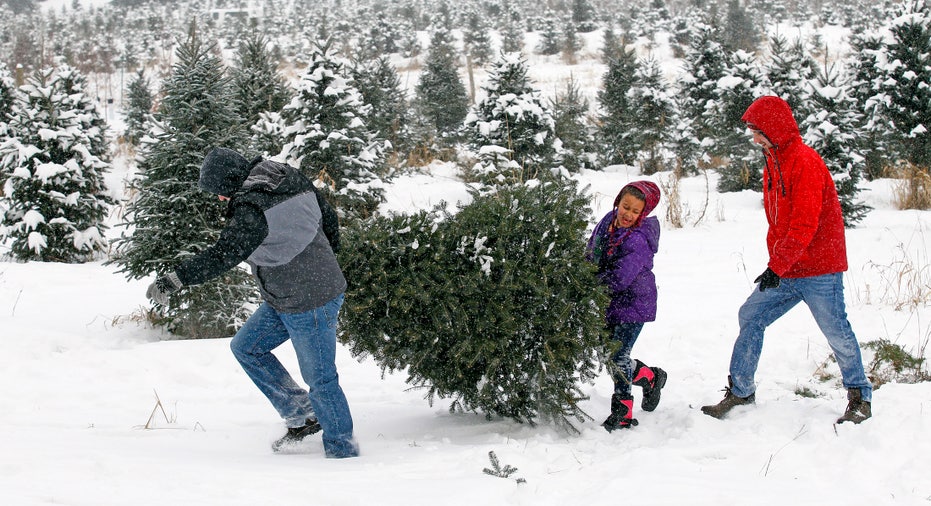Christmas Tree Farmers Say It's Not About the Money

It's the home stretch for tree farmers across the country.
And even with six fewer days this year between Thanksgiving and Christmas, some farmers say it has been one of the busiest seasons yet. “Our opening weekend was up 70%,” says Clarke Gernon, owner of Shady Pond Tree Farm in Pearl River, La. Since 2006, consumers have spent about $1 billion on real trees each year, with 24.5 million trees purchased last year, according to the National Christmas Tree Association. Spokesman Rick Dungey says Christmas tree sales are typically consistent year-over-year.Christmas Tree Trends While all Christmas trees may look the same to an untrained eye, Dungey says there’s been more of an appetite of late for rarer species and sizes. “There’s more than the typical 6- to 7-foot tree. Some are skinny now, and not all are tapered,” says Dungey. He says a new category recently emerged, which some retailers call “condo trees” – 3- to 4-foot trees with the stand already attached. That said, the tall, tapered tree is always in style. “It’s a pretty consistent industry – growers and retailers don’t have a fast response,” says Dungey.Fresh from the Farm Selling trees is typically a seasonal job, not a year-round gig. Carlton, Minn.-based Chub Lake Tree Farm owner Bev Whorton has been selling Christmas trees since the early ‘80s with her husband Jim, who worked full-time in another capacity in the forestry industry. “We have new customers every year,” says Whorton. “Word of mouth is the best advertisement you can have.” She says the most popular trees this year are the Balsam Fir and the Fraser Fir, which sell for between $35 and $45 – right around the national average of $40, according to the NCTA survey. In Loudonville, Ohio, Big Run Evergreens owner Terry Roney says he got his start selling trees after evicting a tenant who was two years behind on rent. “I told him not to come back, and I had to do something with my land,” says Roney. Roney, who works full-time in trucking, says he sells trees every year on his 27-acre farm because he likes the people. “There sure isn’t enough money, after the work you do. But you see everybody from town every year,” says Roney, who sells every tree for $30, regardless of species or height. And while you might not think of the South when imagining the iconic, snow-covered Christmas tree, Gernon says his Louisiana farm is great for growing different varieties. “On site, we have nine varieties, ranging in size from 3- to 4-feet to 19- to 20-feet,” says Gernon, who says the tallest, the Carolina Sapphires, will sell for $400. “They smell like lemon and mint.” The satisfaction of selling Christmas trees to families motivates Gernon to open his 45-acre farm each year – even when faced with adversity, as in the case of Hurricane Katrina, when the eye of the storm passed directly over his property in Pearl River. “It was just absolutely massive – those native trees that went down were so huge,” says Gernon, who says he enlisted the help of friends to stand up 14,000 trees that were knocked down. (The trees survived.) “”The important component is the process of families coming to locations like this, and selecting, cutting, transporting and decorating their trees … The goal produces, in my opinion, the deepest and most enduring of human bonds,” says Gernon.



















